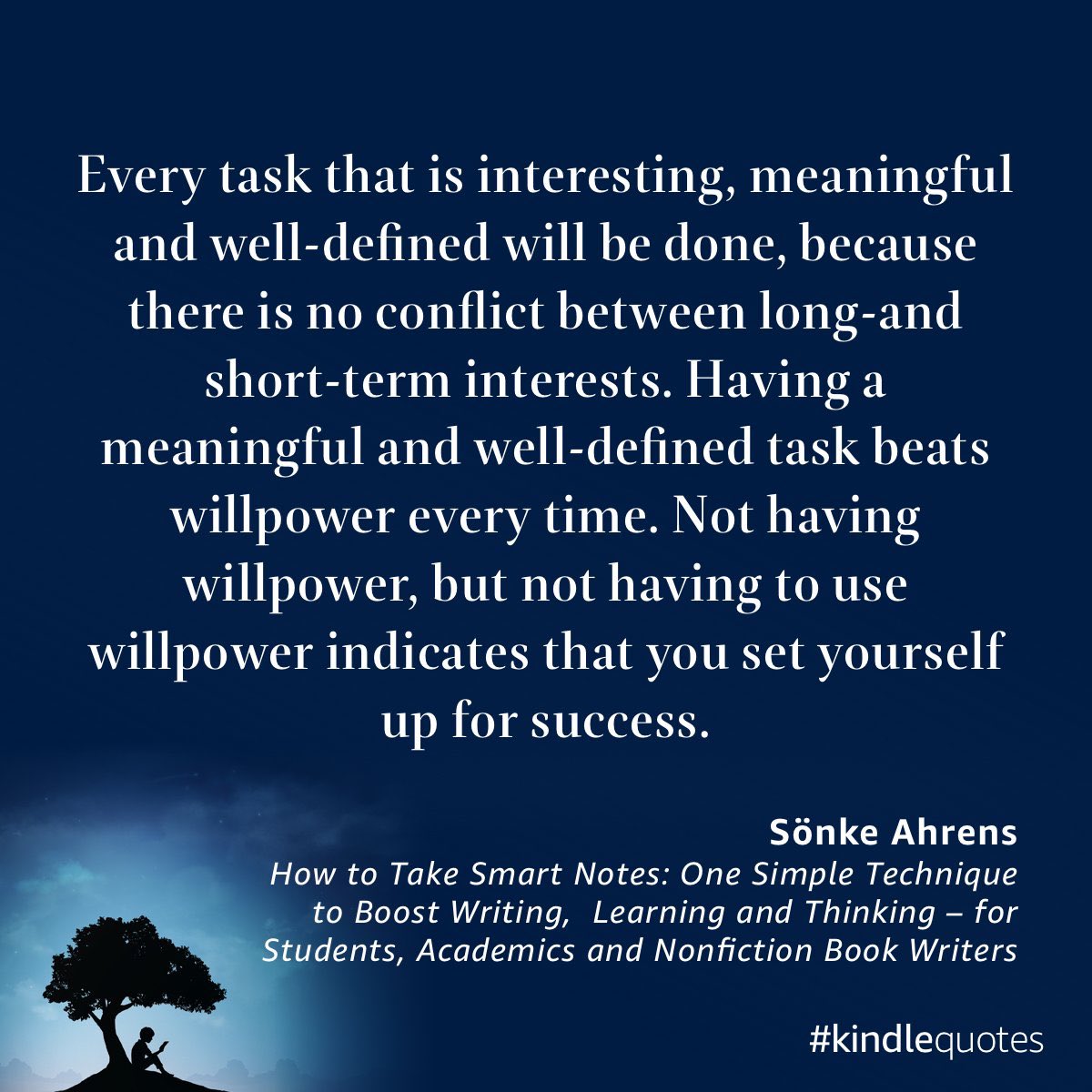'Self discipline' is a patch for being conflicted about what you want to do.
Often, productive people are interpreted as 'having discipline': able to force themselves to do the work even when it's unpleasant.
But creative productivity only ever works in *spite* of that.
Often, productive people are interpreted as 'having discipline': able to force themselves to do the work even when it's unpleasant.
But creative productivity only ever works in *spite* of that.
"Discipline is remembering what you want."
When that works, it's not 'discipline'; it's getting less conflicted.
When that works, it's not 'discipline'; it's getting less conflicted.
The real answer to productivity and motivation is to resolve the conflicts you have.
Once unconflicted about what to do, even hard work is effortless, motivation-wise.
(And fun. #ReasonIsFun)
It becomes effortful to *not* do it. It pulls you in and demands you keep working.
Once unconflicted about what to do, even hard work is effortless, motivation-wise.
(And fun. #ReasonIsFun)
It becomes effortful to *not* do it. It pulls you in and demands you keep working.
Discipline is fighting yourself.
Wasted energy. Wasted creativity.
Put that instead into figuring out what you actually most want.
Solve problems in doing what you want with reason, not force.
Wasted energy. Wasted creativity.
Put that instead into figuring out what you actually most want.
Solve problems in doing what you want with reason, not force.
It sounds cute and simplicistic — like meaningless motivational self-help talk — but the world really does work this way.
Problems really are soluble. What's stopping you really is conflicting ideas. Force is trying to reach answers/truth using brute authority instead of reason.
Problems really are soluble. What's stopping you really is conflicting ideas. Force is trying to reach answers/truth using brute authority instead of reason.
"I've tried everything! Self-discipline, Beeminder, social media time-outs, Tony Robbins, waking at 5am... Nothing seems to work!"
Cool, have you tried reason?
Cool, have you tried reason?
h/t @Jediphone — 

On how willpower and escapism are two sides of the same coin:
https://twitter.com/prerationalist/status/1329141983227617281
• • •
Missing some Tweet in this thread? You can try to
force a refresh




